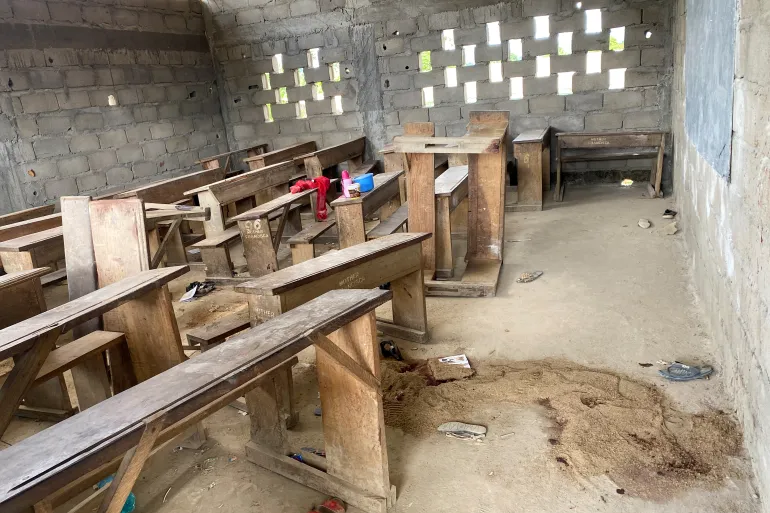Limbe, Cameroon & Eket, Nigeria — It’s just before 3pm on a weekday and 17-year-old Paul Ngwa* is returning home from his job at a phone and watch repair workshop in Limbe, a coastal town in the southwest region of Cameroon. Tired and sweaty, he gets ready to head out to his second job as a laundry worker in a nearby village.
“There is a lot to finance,” says the teenager, who earns 3,000 to 7,500 Central African francs ($4.72-11.79) weekly from both jobs to help support his four-member family. Ngwa gives most of his income to Florence*, his 45-year-old single mother, who earns 4,500-6,000 CFA ($7-9) a week selling vegetables and fish by the roadside.
Despite their combined earnings, the family finds it difficult to sustain themselves and sometimes takes out loans.
Meanwhile, Ngwa’s sisters, aged 13 and 15, have taken up farming to help the family and pass the time.
 Years ago, 3pm would be the time many school pupils in Limbe returned home after a day of learning. But since a separatist crisis erupted in Cameroon’s Anglophone regions in 2016 – with some of the violence targeting schools – such routines have vanished for many students, cutting them off from their education
Years ago, 3pm would be the time many school pupils in Limbe returned home after a day of learning. But since a separatist crisis erupted in Cameroon’s Anglophone regions in 2016 – with some of the violence targeting schools – such routines have vanished for many students, cutting them off from their education










